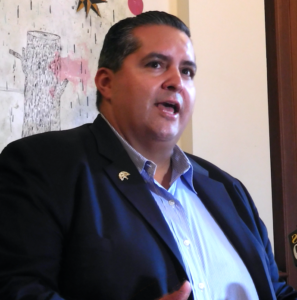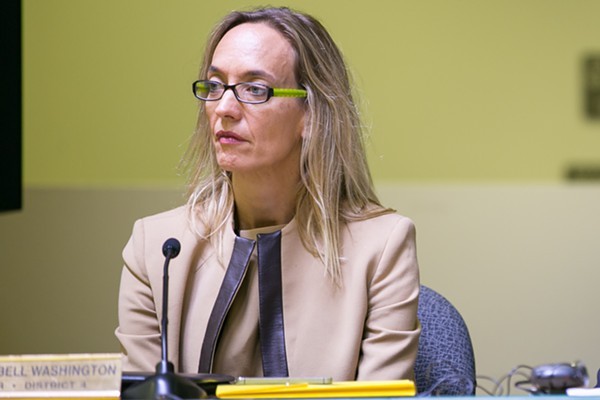Councilmembers Not in a Rush to Hold City Accountable for Late Payments to small Businesses and Nonprofits
May 12, 2018
Posted in Responsive Government
By Post Staff
A number of speakers at this week’s meeting of the City Council’s Finance Committee asked councilmembers to handle an urgent issue: the failure to hold the city accountable for late payments on contracts, jeopardizing the nonprofits and businesses that depend on the city to honor its agreements.

But following a discussion, councilmembers voted to postpone examining possible solutions to the longstanding problem until September, after the council’s summer vacation.
At present, a local ordinance – passed in 2007 – requires the city to pay vendors a penalty if they are not paid within 20 business days. However, the city interprets the law to mean that it pays only interest, not penalties that would compensate the vendors for expenses they incur for the city’s failure to pay on time.
A report was discussed at Tuesday’s committee meeting at the request of Councilmember Noel Gallo, which shows that while late payments to contractors are a small percentage of the total number of invoices the city pays each year, the numbers have been growing steadily.
“There is a steady increase in the number of late payments,” said Councilmember Abel Guillén, who chairs the committee. He pointed out that the report shows there were 141 late invoices in 2013 and 609 in 2017.
A statement by Councilmember Rebecca Kaplan, read by one of her staff members, emphasized the importance of putting teeth into the law.
“This was a hard -ought victory and is now the law in Oakland. It should be taken seriously,” Kaplan said in the statement.

“The failure to pay on time can cause a business or nonprofit to go out of business or be evicted if they can’t pay their rent on time. It can cause workers to be laid off or have their own pay delayed and have ripple effects in service reduction.
“We enacted a prompt payment policy and intended that it would include penalties that would make the policies meaningful, to make sure the policy is truly implemented.”
While the report does describe “token amounts” of interest that is paid, interest if not the same as penalty, Kaplan said.
Richard de Jauregui of the Oakland Private Industry Council (PIC) told council members that small businesses and nonprofits face significant penalties, not only interest, if their rent or payroll taxes are paid even one day late.
As an example, he said that if a business was paid 1 million late for one year, it would receive about $7,300 in penalties from the city.
“(But) the damages to the business (would be) in excess of $75,000,” he said.
Because the issue was only on the agenda as an informational item, the main debate at committee was when to reschedule for possible action.
Finance Director Katano Kasaine proposed scheduling the item for next year after her department had more data.
Councilmembers Annie Campbell Washington and Abel Guillén ignored Councilmember Gallo, who wanted to schedule the discussion in June, instead scheduling the discussion for the end of September.